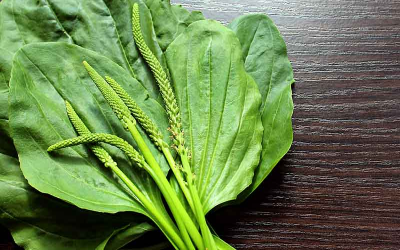Plantain weed is perceived just as a garden pest. But many people don’t know that they are not only edible but also used as traditional medicine for centuries. Let’s learn more about Plantain weed.
Table of Contents
All You Need To About Plantain weed
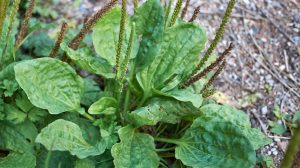
Plantain, otherwise called ‘broadleaf plantain’ (Plantago major), is local to Europe and certain pieces of Asia. This perpetual plant produces greenish blossoms and has huge, oval-molded leaves that can be eaten crude or cooked.
In spite of sharing its title, plantain weed is not in relation to plantain fruit, which is a kind of banana.
Strikingly, a few kinds of edible plantain weed have a place with a similar family as broadleaf plantain. These include:
- Narrow-leaf plantain (Plantago lanceolata)
- Light plantain (Plantago ovata)
- Bracted plantain (Plantago aristata)
- Blackseed plantain (Plantago rugelii)
- Chinese plantain (Plantago asiatica)
- Wooly plantain (Plantago patagonica)
- Buck’s-horn plantain (Plantago coronopus)
Albeit frequently taken as weeds, these said plants all have eatable leaves and seeds that have been utilized for medicinal purposes for quite a long time.
What are the health benefits of plantain weed?

Primary researches show that plantain weed may have a few health advantages, however, more examination is required.
1. May diminish inflammation
While low degrees of irritation is a piece of your body’s healthy reaction to injury, chronic inflammation can prompt different health issues. Studies indicate that plantain weed may help diminish irritation. Specifically, the leaves contain a few calming (anti-inflammatory) mixes, including flavonoids, tannins, terpenoids, and glycosides.
A rodent study found that controlling plantain weed extricate diminished a few markers of inflammation brought about by liver injury. Another research on animals watched comparative discoveries, announcing that plantain weed extricate fundamentally diminished inflammation and decreased liver enzyme to secure against liver damage. Likewise, test-tube researches propose that plantain seeds may diminish a few markers of irritation and decrease the development of certain cancer cells.
All things considered, plantain weed ought not be viewed as a cancer cure. Human investigations are important to assess this current plant’s anti-inflammatory impacts.
2. May support wound healing
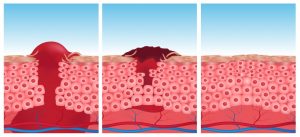
Some exploration takes note of that plantain weed may provide wound healing by decreasing inflammation, blocking microbial development, and easing torment. Truth be told, an investigation on 40 individuals found that applying a gel containing aloe vera and plantain weed recuperated foot ulcers. So also, in an animal-based study, aloe vera and plantain weed improved injury healing and increases tissue fix when used topically.
No different, it’s hard to decide plantain’s precise impacts since these investigations additionally utilized aloe vera. In another creature study, applying just plantain weed to wounds helped increment the pace of healing, in comparison to a benchmark group. All things considered, further exploration is also needed.
3. May prevent digestive-based health problems

Various elements in plantain weed’s seeds and leaves have been appeared to prevent certain stomach related problems. Specifically, the seeds carry psyllium, a kind of fiber frequently utilized as a natural laxative since it assimilates water as it travels through your digestive tract.
As indicated by one survey, plantain leaves may likewise slow the actions of your stomach related tract, which may advance gut normality and help treat diarrhea. A rat-based research even discovered that narrow-leaf plantain extricate advanced the recuperating of stomach ulcers. Also, some creature research proposes that plantain weed’s calming properties may help stomach related problems such as inflammatory bowel disease (IBD), which can cause indications like stomach torment, swelling, and diarrhea.
What are the potential side effects of plantain weed?
Most healthy grown-ups can securely eat plantain weed’s leaves either crude or cooked.
Nonetheless, plantain supplements may cause mellow indications like vomiting, diarrhea, nausea, bloating, and skin breakouts. High portions may trigger progressively genuine symptoms, including hypersensitivity, anaphylaxis — a serious and conceivably perilous unfavorably allergic response.
Fiber supplements got from plantain seeds, for example, psyllium may likewise cause stomach related problems, including gas, swelling, and awkward fullness. Make certain, to begin with, a low dose, enhance your consumption gradually, and utilize just as coordinated to limit any likely symptoms. In the event that you experience an unfavourably allergic reaction, end-use quickly and converse with your medicinal services supplier.
How to consume plantain weed?
Plantain weed is accessible both as a supplement and consumable vegetable.
Supplements
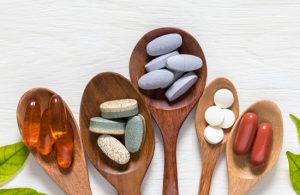
You can discover plantain weed in capsule, tea form, and tincture at various wellbeing stores and drug stores. The standard dose for implantations or teas is around 5 ounces (150 mL), 3–4 times every day. In powdered structure, the normal measurement ranges from 3–5 grams for each day. Be certain you don’t surpass the measurements as instructed on the item. It’s imperative to converse with your doctor before supplementing, particularly on the off chance that you have any hidden health conditions or are taking any prescriptions.
Fresh leaves
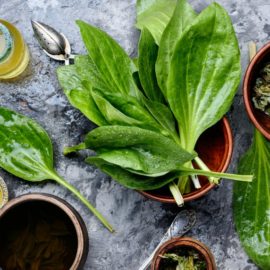
In case you get the chance to discover plantain weeds in your yard, you can likewise appreciate the leaves in an assortment of dishes. After cautious washing, youthful leaves can be eaten crude or cooked. Since more seasoned leaves will, in general, be harder, they might be more qualified for cooked dishes, for example, soups, stir-fries, and stews.
For topical use, have a go at drying the leaves and mixing them into your decision of oil, for example, coconut, sunflower, almond, or olive oil. Dried plantain weed can likewise be added to regular healthy skin items, including lip balms, moisturizers, and ointments.
On the off chance that you reap plantain weed from your yard, attempt to maintain a strategic distance from plants that have been treated with pesticides, are becoming close to the street, or are situated in regions frequented by pets.
Conclusion
In spite of being viewed as a weed, the regular nursery plantain has eatable leaves and seeds. It might even give medical advantages, for example, better digestion, proper wound recovery, and lower inflammation. Moreover, plantain weed is generally accessible as a supplement, tea, and healthy skin product.

